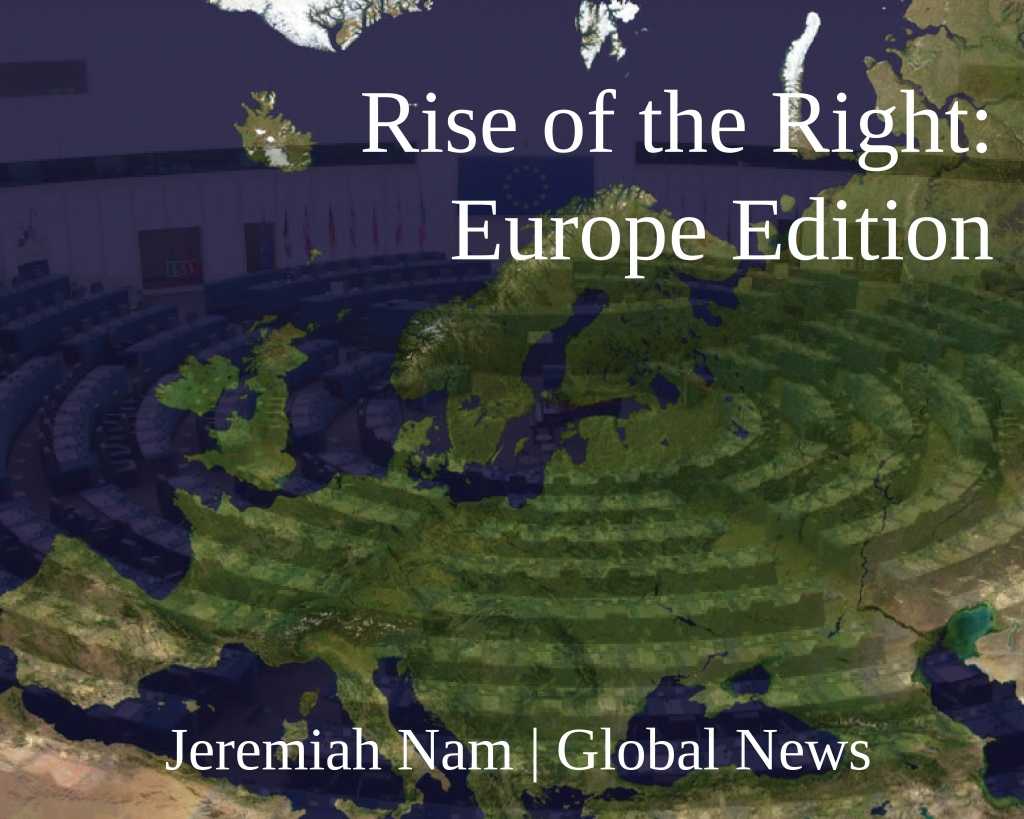Far-right wing parties have occupied European countries for quite some time, but only recently have they seen an upsurge of political support encouraged by dissatisfaction with status quo government. Though European countries, especially countries in the EU, have generally been considered liberal, this spike of far-right wing ideology introduces and reveals that many Europeans have been harboring a different perspective for some time. Examples of such parties include, but certainly are not limited to: Alternative for Germany, which has acquired 10 out of 16 seats in the German parliament; Golden Dawn, a party situated in Greece which has adopted Nazi symbolism and ideologies; and the Sweden Democrats, who have acquired the position of second largest party in Sweden.
The ideologies of these far-right parties convey similar themes. Firstly, these parties advocate a strong sense of nationalism and Euroscepticism. This means that in the vein of conservatism, these countries wish to preserve pride for their nation and, to some degree, reject the notion of a European Union. This ideology indicates conservative spending on the nation, increased spending on the military, and preservation of the white race.
“Most of the time we don’t really associate European countries as being nationalistic,” noted Katie Lee (10), MUN member. “With our fixation on the US and its events, it’s easy to overlook what’s going on in other parts of the world, and why things are happening the way they are. However, with numerous economic depressions and borderline crises popping up across the European continent, it’s easy to see why some would be so unhappy to go far-right and become so nationalist.”
Secondly, the far-right stand in vehement opposition against immigration from the Middle East, and sometimes even advocate persecution against people of Islamic beliefs. This radical upsurge comes as a direct result of the relatively recent Arab Spring, which left millions of refugees stranded and homeless. After the EU enacted a policy accepting millions of these refugees, followed by several cases of rape and criminal activity by some of the refugees, many Europeans voiced negative sentiments against the religion of Islam as a whole.
“The increase in conservatism in the European area is very understandable, and represents today’s society considerably,” said Ian Lee (10), forensics member. “Although people like to think xenophobia is no longer the norm, especially in model countries like Germany and Sweden, the reality is that when people of a culture you don’t really understand start flowing into your region of otherwise same race people there is bound to be backlash. It’s sad that it has to come in this extreme level, but again this shows that xenophobia is alive and well in the 21st century.”
As of now, there are not any drastic, radical measures being taken by these parties in the governing bodies of these countries. However, as polls show a constant decrease in the polls of leftist groups while right-wing parties continue to surge up, the shift in governmental power many indicate a wave of change in the ideals of Europe. The people are clearly growing disillusioned with the current sociopolitical landscape, and changes are likely to take place.
“Am I surprised that there is a sudden rise in conservatism across Europe? No.” said Michael Silber, history teacher and forensics coach. “There is a constant clash between these forces of liberalism and conservatism, and liberalist ideologies have been at the forefront for quite some time. The rise in conservatism is more of a reactionary response from citizens that stem from these liberalist policies. That being said, this shift in power may possibly entail a threat to values that liberals have upheld, and is something that needs to be called into question.”

